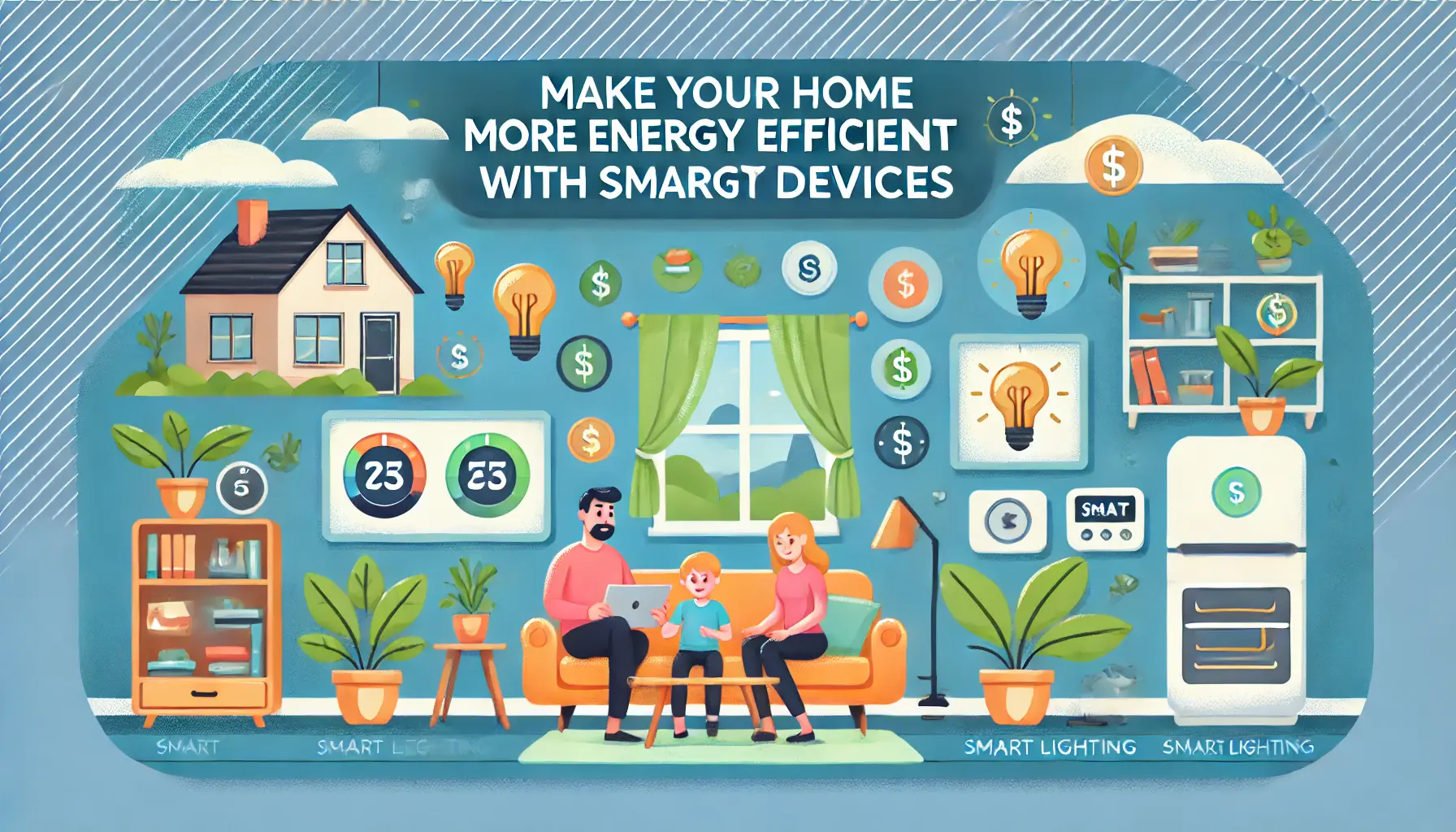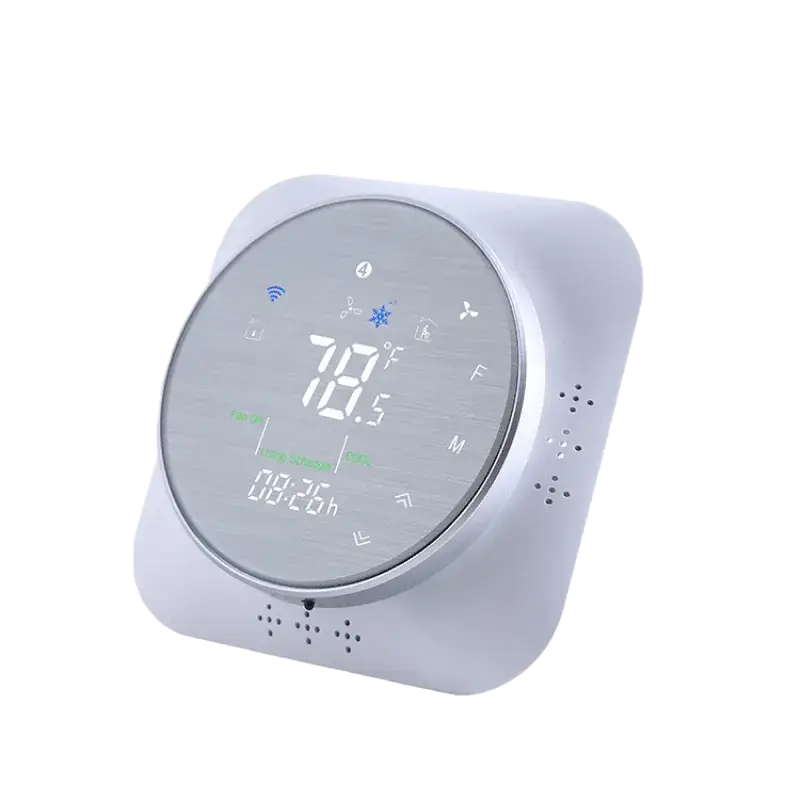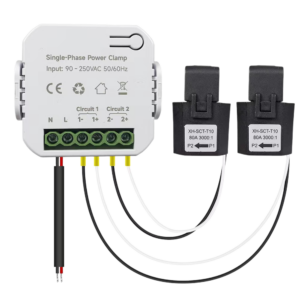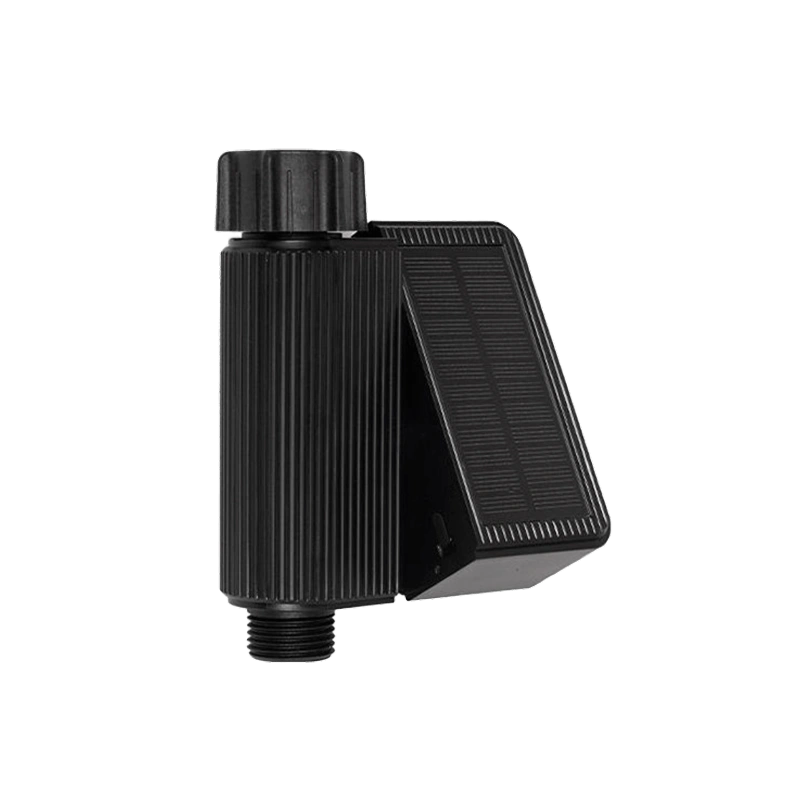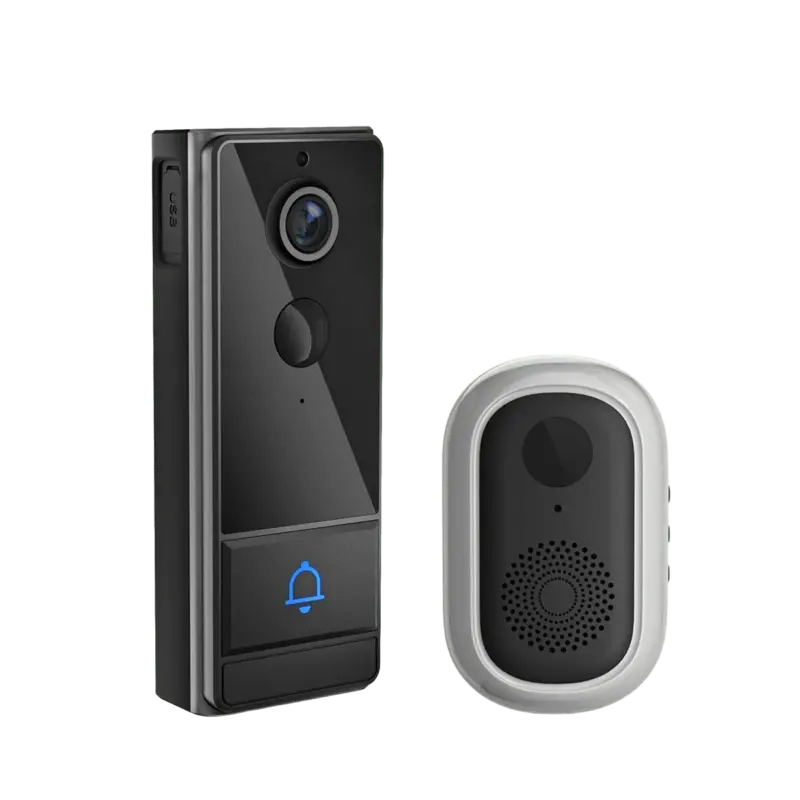Learn how to make your home more energy efficient with smart devices. Discover tips on using smart thermostats, lighting, appliances, and home automation systems to save energy and reduce utility bills. Find out about financial incentives and debunk common myths about smart home technology.
Home energy efficiency is essential for reducing utility bills and minimizing environmental impact. As energy costs rise and concerns about climate change grow, enhancing home energy efficiency has become a priority for many homeowners. This article will explore various strategies and tips to improve your home's energy efficiency, focusing on smart devices and their role in achieving this goal.
Understanding Home Energy Efficiency
Home energy efficiency refers to using less energy to perform the same tasks, such as heating, cooling, and lighting. By improving energy efficiency, homeowners can reduce their energy consumption, lower their utility bills, and decrease their carbon footprint. Efficient energy use not only saves money but also contributes to a more sustainable and environmentally friendly lifestyle.
Energy Audits: The First Step
To start improving your home's energy efficiency, it's essential to conduct an energy audit. This assessment helps identify areas where energy is being wasted and provides recommendations for improvements.
- DIY Energy Audits
- Check for drafts around windows and doors
- Inspect insulation levels in the attic and walls
- Evaluate the efficiency of heating and cooling systems
- Use online tools and resources like the Home Energy Score from the Department of Energy
- Professional Energy Audits
- Comprehensive assessment by certified energy auditors
- Use of specialized equipment like blower doors and infrared cameras
- Detailed report with specific recommendations for improvement
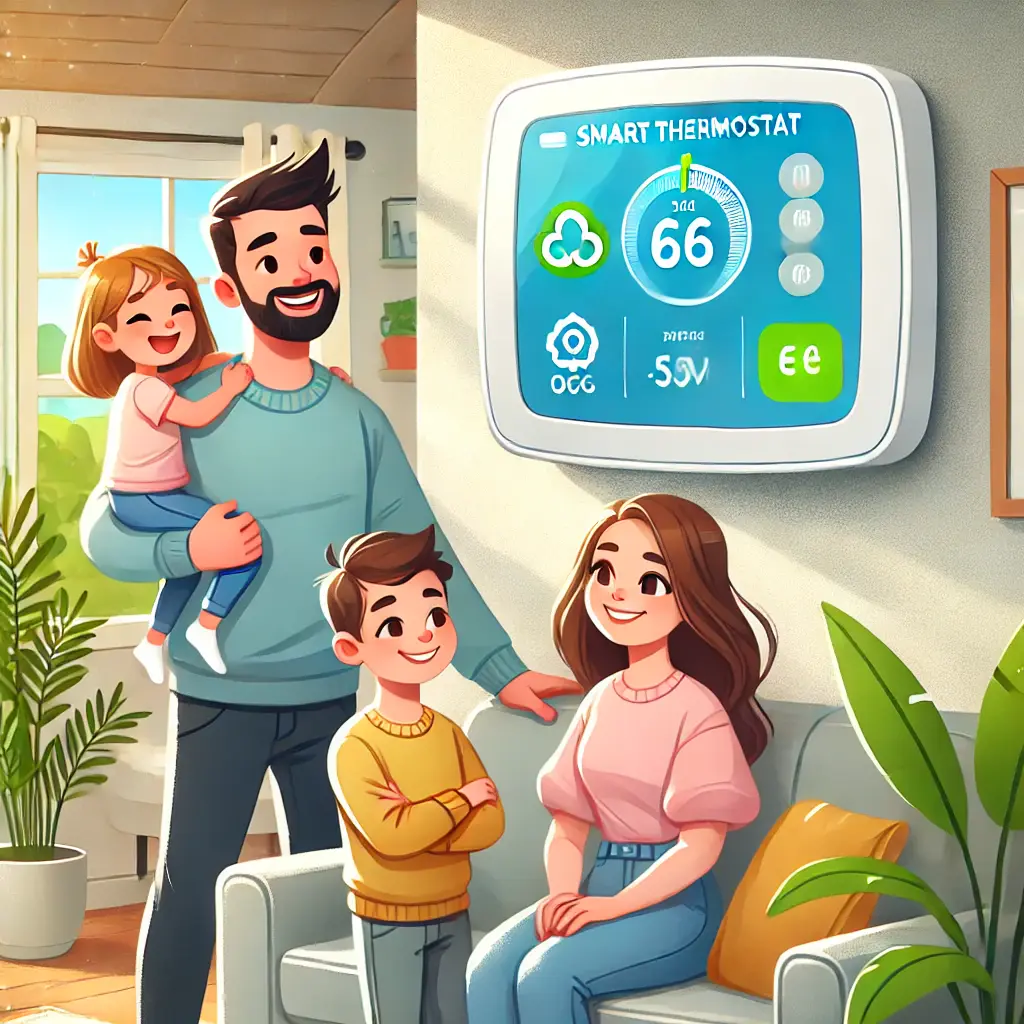
Smart Thermostats
Smart thermostats are a crucial component of an energy-efficient home. These devices learn your preferences and adjust the temperature accordingly, providing comfort while saving energy.
- Benefits of Smart Thermostats
- Automated temperature adjustments based on your schedule and habits
- Significant energy savings by reducing heating and cooling when not needed
- Remote control via smartphone apps
- Popular Smart Thermostat Models
- Nest Learning Thermostat: Automatically programs itself based on your behavior
- Ecobee SmartThermostat: Equipped with room sensors for more accurate temperature control
- Honeywell Lyric T5: Affordable option with Wi-Fi connectivity and programmable schedules
Smart thermostats like those from Nest and Ecobee have been shown to save homeowners up to 15% on cooling costs and 10-12% on heating costs (Source: Vivint, Ecohome).
Smart Lighting Solutions
Smart lighting is another effective way to enhance home energy efficiency. These systems offer automated control over your lighting, ensuring that lights are only on when needed.
- Benefits of Smart Lighting
- Energy savings through automated lighting control
- Ability to adjust lighting remotely via smartphone apps
- Integration with home automation systems for customized lighting schedules
- Popular Smart Lighting Solutions
- Philips Hue: Wide range of smart bulbs and lighting systems with app control
- Sengled LED Bulbs: Energy-efficient LED bulbs with additional features like built-in speakers and security cameras
By replacing traditional bulbs with smart LED bulbs, you can significantly reduce energy consumption and extend the lifespan of your lighting fixtures (Source: Vivint, ElectricityPlans).
Smart Appliances
Smart appliances are revolutionizing home energy efficiency. These devices not only perform their primary functions but also optimize energy use through advanced features and connectivity.
- Overview of Energy-Efficient Smart Appliances
- Smart Refrigerators: Allow you to check contents without opening the door, reducing energy waste
- Smart Washers and Dryers: Adjust cycles based on load size and fabric type for optimal efficiency
- Smart Dishwashers: Use sensors to adjust water and energy use according to the load
- Energy Star Certification
- Look for the Energy Star label to ensure appliances meet strict energy efficiency guidelines
- Benefits include lower energy bills and reduced environmental impact
- Examples of Smart Appliance Features
- Remote control and monitoring via smartphone apps
- Energy consumption tracking and usage reports
- Automated maintenance alerts and diagnostics
Integrating smart appliances into your home can lead to substantial energy savings and increased convenience (Source: Vivint, ElectricityPlans).
Smart Plugs and Power Strips
Smart plugs and smart power strips are simple yet effective tools for enhancing home energy efficiency. These devices help eliminate phantom energy consumption by allowing you to control the power supply to your electronics.
- How Smart Plugs and Power Strips Work
- Plug them into standard outlets and connect your devices
- Control power remotely using smartphone apps
- Schedule devices to turn off when not in use
- Benefits of Smart Plugs
- Reduce standby power consumption
- Improve control over household energy use
- Affordable and easy to install
- Recommended Brands
- TP-Link Kasa Smart Plugs
- Wemo Mini Smart Plugs
- Eufy Smart Plugs
Using smart plugs can help manage energy use more efficiently, especially for devices that consume power even when turned off (Source: ElectricityPlans, Move.org).
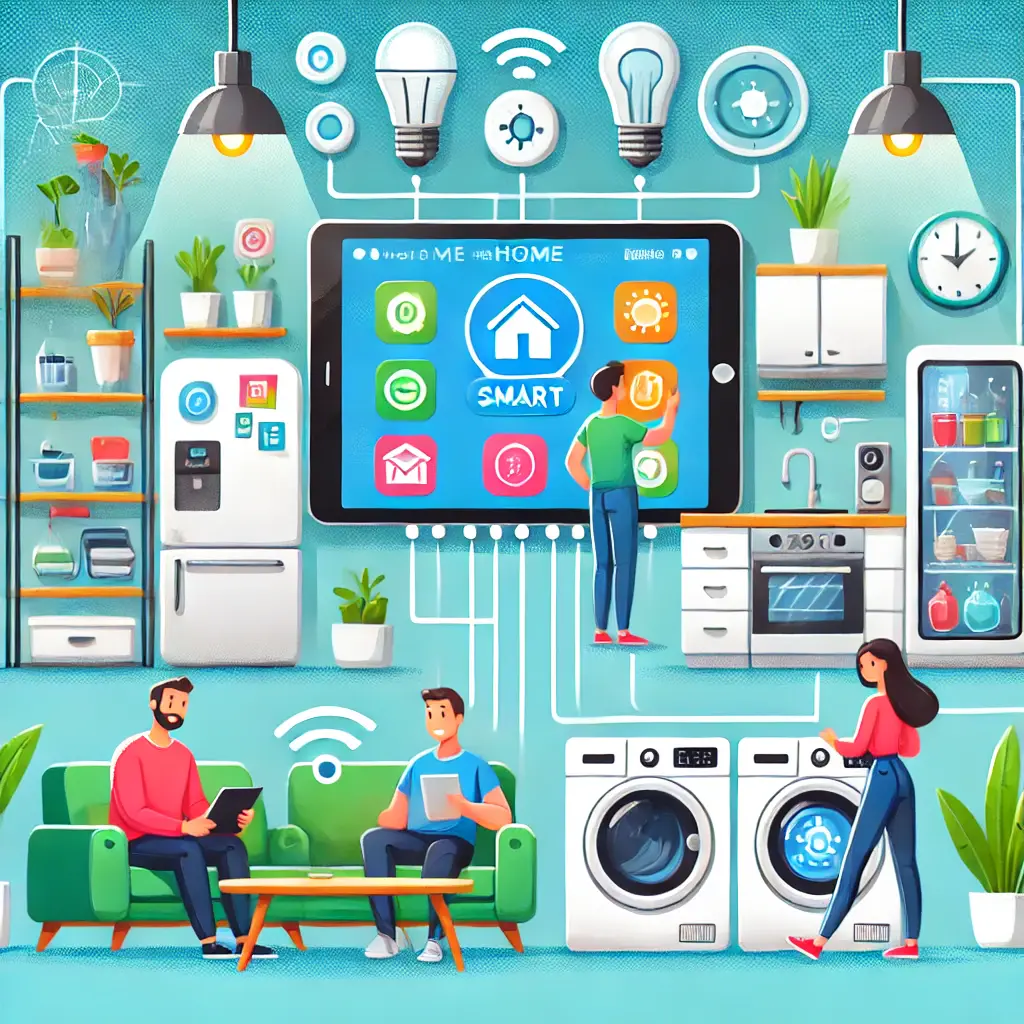
Home Energy Monitoring Systems
Home energy monitors provide real-time data on your household’s energy consumption. These systems help you understand where energy is being used and identify opportunities for savings.
- Introduction to Home Energy Monitors
- Devices like Sense, Eyedro, and Smappee connect to your electrical panel
- Monitor energy usage across multiple circuits
- Provide detailed reports and insights into energy consumption patterns
- Benefits of Real-Time Energy Tracking
- Identify energy-hogging appliances and devices
- Set energy budgets and goals
- Receive alerts for unusual energy usage
- Setting Up Home Energy Monitors
- Professional installation recommended for accuracy
- Use the data to make informed decisions about energy use
By tracking energy consumption with home energy monitors, you can take targeted actions to reduce energy use and save on utility bills (Source: Ecohome, Vivint).
Smart HVAC Systems and Maintenance
Heating, ventilation, and air conditioning (HVAC) systems are among the largest energy consumers in a home. Upgrading to smart HVAC systems and maintaining them properly can lead to significant energy savings.
- Overview of Smart HVAC Systems
- Systems like SmartAC HVAC Monitoring predict issues before they occur
- Features include monitoring air filter health, airflow, and detecting water leaks
- Importance of Regular Maintenance
- Schedule annual HVAC check-ups
- Replace air filters regularly to maintain efficiency
- Use smart thermostats to optimize heating and cooling
- Tips for Optimizing HVAC Performance
- Seal ducts and insulate HVAC components
- Use programmable or smart thermostats for better control
- Ensure proper installation and calibration of HVAC systems
Regular maintenance and smart technology can help your HVAC system run more efficiently, saving energy and money (Source: ElectricityPlans, NextStepLiving).
Smart Water Heaters
Smart water heaters provide on-demand hot water while using less energy compared to traditional water heaters.
- Benefits of Tankless Water Heaters
- Heat water only when needed, eliminating standby energy losses
- More compact and efficient than storage tank heaters
- Can be 24% to 34% more energy-efficient
- Recommended Smart Water Heater Models
- Rinnai Sensei Tankless Water Heater
- Rheem Performance Platinum Smart Electric Water Heater
- Installation and Maintenance Tips
- Professional installation recommended for optimal performance
- Regular maintenance to ensure efficiency and longevity
Switching to a smart water heater can lead to significant energy savings and a more efficient home (Source: NextStepLiving).
Integrating smart devices into your home is a powerful way to enhance energy efficiency. From smart appliances and plugs to home energy monitors and HVAC systems, these technologies provide greater control over energy use and can lead to substantial cost savings. In Part 3, we will explore smart home automation, financial incentives, and address common myths about smart home energy efficiency.
Smart Home Automation and Integration
Smart home automation systems bring all your smart devices under one umbrella, allowing for seamless control and enhanced energy efficiency.
- Benefits of Smart Home Integration
- Centralized control of all smart devices
- Automated routines for optimized energy use
- Increased convenience and efficiency
- Examples of Smart Home Hubs
- Amazon Echo: Voice control for various smart devices
- Google Home: Integration with Google Assistant for device control
- Samsung SmartThings: Comprehensive platform for managing multiple smart devices
- Creating Automated Routines
- Schedule lights and thermostats based on daily routines
- Use motion sensors to turn off lights and appliances when not in use
- Set up energy-saving modes for when the house is unoccupied
Implementing smart home automation can significantly enhance energy efficiency by ensuring devices operate only when needed (Sources: Vivint, Ecohome).
Financial Incentives and Rebates for Smart Devices
Upgrading to smart devices can be costly, but there are numerous financial incentives and rebates available to offset the initial investment.
- Overview of Available Incentives
- Federal and state tax credits
- Utility company rebates
- Manufacturer discounts and promotions
- How to Apply for Rebates
- Check eligibility requirements for federal and state programs
- Submit rebate forms through utility companies
- Keep receipts and documentation of purchases
- Examples of Incentives
- Energy Star appliance rebates
- Federal tax credits for energy-efficient home improvements
- Local utility rebates for smart thermostats and home automation systems
Taking advantage of these financial incentives can make upgrading to smart devices more affordable (Sources: ENERGY STAR, Department of Energy).
Common Myths About Smart Home Energy Efficiency
Despite the growing popularity of smart home devices, there are several misconceptions about their effectiveness.
- Debunking Common Misconceptions
- Myth: Smart devices are too expensive and not worth the investment.
- Fact: While the initial cost can be high, the long-term savings on energy bills often outweigh the upfront investment.
- Myth: Smart home technology is too complicated to install and use.
- Fact: Many smart devices are designed for easy installation and user-friendly operation, often with professional installation options available.
- Myth: Smart devices don’t make a significant impact on energy consumption.
- Fact: Smart devices, when used correctly, can lead to substantial energy savings through optimized use and automation.
Understanding the true benefits of smart home technology can help homeowners make informed decisions about energy efficiency upgrades (Sources: Vivint, NextStepLiving).
FAQs
- How do smart thermostats save energy?
- Smart thermostats save energy by learning your schedule and preferences, adjusting the temperature automatically to optimize heating and cooling efficiency.
- Are smart devices worth the investment for energy savings?
- Yes, smart devices can lead to significant long-term savings on energy bills, often outweighing the initial cost of the devices.
- What are the easiest smart devices to install for beginners?
- Smart plugs, smart bulbs, and basic smart thermostats are among the easiest devices to install and provide immediate energy savings.
- How do I control my smart home devices remotely?
- Most smart devices come with companion smartphone apps that allow you to control and monitor them from anywhere with an internet connection.
Integrating smart devices into your home is a powerful way to enhance energy efficiency. From smart appliances and plugs to home energy monitors and HVAC systems, these technologies provide greater control over energy use and can lead to substantial cost savings. By taking advantage of financial incentives and understanding the true benefits of these devices, homeowners can make informed decisions that promote both cost savings and environmental sustainability.
